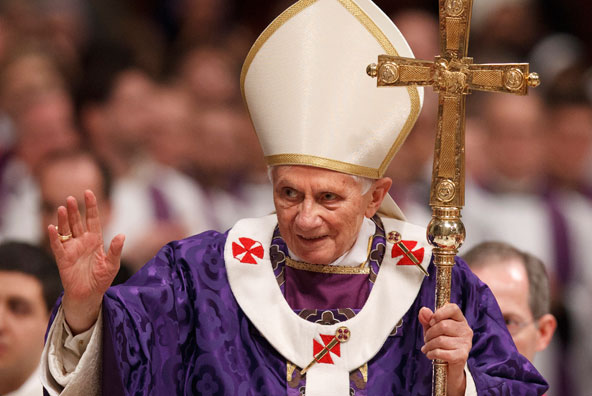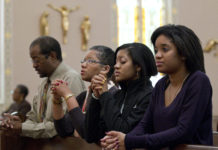
Pope Benedict XVI shocked the world Feb. 11 in announcing his plans to resign at the end of the month — the first time such a transition will occur in 600 years.
This is from a pope known for surprises throughout his papacy, and yet nobody saw this one coming.
Upon his election in April 2005, for instance, some had expected Pope Benedict to be a “hard-liner.” As head of the Congregation for the Doctrine of the Faith from 1981 to 2005, then-Cardinal Joseph Ratzinger was responsible for promoting and safeguarding Church teachings on faith and morals. In this capacity, he was known in some circles as “God’s Rottweiler.”
But instead, Pope Benedict proved over the course of his eight-year papacy to be a warm, guiding shepherd who was fit to be called Holy Father.
His published works — among them three encyclicals delving deep into truth, hope and love, and a three-book biography of Jesus Christ — were a call for the Church to embrace the central truths of the faith. Hardly the work or demeanor of someone who some believed would be a ruthless disciplinarian.
Quite the contrary. Pope Benedict did much to bring people together. He reached out to Muslims and sought to heal old wounds, while even encouraging Catholics to share with them their beliefs in Jesus Christ. The pope worked to bring back into the Church Catholic groups who broke away from the Church after the Second Vatican Council. He also allowed entire communities of Anglicans to come into full communion with the Catholic Church.
Importantly, Pope Benedict streamlined the process for bishops to remove priests from ministry found guilty of sexual abuse. He had the sexual abuse of a minor categorized in the Church’s laws under the gravest of crimes. He reached out to survivors of abuse, even meeting with them personally during his 2008 visit to the United States, as well as during his other foreign visits.
This pope repeatedly emphasized the need to embrace and understand the Second Vatican Council as part of the Church’s 2,000-year tradition, one that illustrated the richness and diversity of the faith.
Women, too, were given a stronger voice in the Church during his pontificate; women were appointed to leadership positions at the Vatican, mirroring the trend in the United States, where women held nearly half of all administrative positions in dioceses and an ever-growing number of senior executive positions.
Speaking of the United States, Pope Benedict showed strong support for the Catholic Church here. He named nine Americans to the College of Cardinals, and he displayed a great love for the U.S. Church during his 2008 visit.
And it was just a few months ago that we were all bowled over when Pope Benedict began using Twitter!
But for a pope known for his surprises, his resignation tops them all. While we are sad that he feels he no longer has the energy to maintain the unending demands of the papacy, we are grateful for his lifetime of leadership in the Catholic Church. Like any good father, he worked to draw people together in the Church. There is no denying the impact Pope Benedict XVI will leave on this world.




![[VIDEO] Make Sunday feel like Sunday again](https://www.catholicsun.org/wp-content/uploads/2021/04/2021-YOUTUBE-BISHOP-MESSAGE-THUMBNAIL-ENGLISH-218x150.png)
